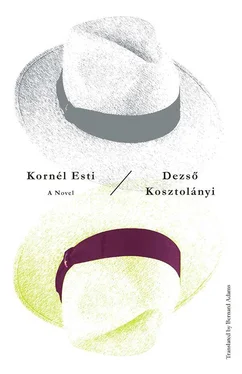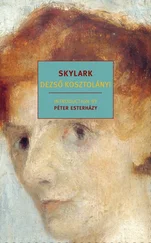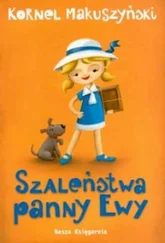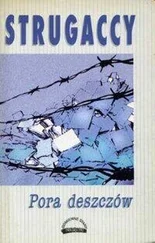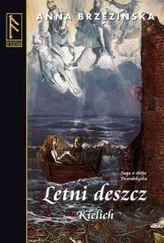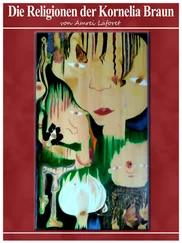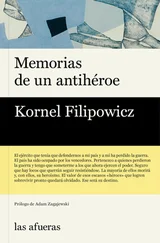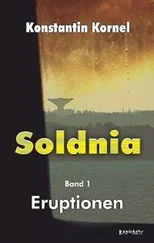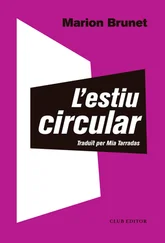“So he sent her to heaven too,” muttered Kornél. “He acted consistently.”
“Quite,” I retorted. “Only neither of us would be capable of such vicious and divine wisdom. But if we joined forces, Kornél, we might perhaps get somewhere near it. Like Night and Day, Reality and Imag ination, Ahriman and Ormuzd. What do you say?”
“The trouble is,” he complained, “I get bored, bored beyond words with letters and sentences. You scribble away and in the end you see that the same words keep repeating themselves. It’s all no, but, that, rather, therefore . It’s infuriating.”
“I’ll see to that. All you need to do is talk.”
“I’ll only be able to talk about myself. About what’s happened to me. And what has happened? Just a minute. Nothing really. Hardly anything happens to most people. But I’ve imagined a lot. That’s part of our lives too. The truth isn’t just that we’ve kissed a woman, but also that we’ve secretly lusted after her, wanted to kiss her. Often the actual woman’s the lie and the lust is the truth. A dream is also reality. If I dream that I’ve been to Egypt, I can write an account of the journey.”
“So will it be a travelogue?” I joked, “or a biography?”
“Neither.”
“A novel?”
“God forbid! All novels begin: ‘A young man was going along a dark street, with his collar turned up.’ Then it turns out that the man with the turned-up collar’s the hero of the novel. Working up interest. Dreadful.”
“What, then?”
“All three in one. A travelogue — I’ll say where I would have liked to go — and a biography in the form of a novel: I’ll give details of how often the hero died in my dream. But one thing I insist on — don’t glue it all together with an idiotic story. Everything must be exactly what you’d expect from a poet: fragments.”
We agreed to meet more often in future, in the Torpedo or the Vitriol. If the worst came to the worst, on the telephone.
He walked me to the door.
“Oh,” in the corridor he slapped his forehead. “Something I forgot. What about the style?”
“We’ll be writing together.”
“But our styles are poles apart. You’ve recently been favoring calm, simplicity, classical images. Not much decoration, not many words. My style, on the other hand, is still restless, untidy, congested, ornate, racy. I’m an incurable romantic. Lots of epithets, lots of images. I won’t let you cut that out.”
“Tell you what,” I reassured him. “Let’s meet in the middle. I’ll take down what you say in shorthand, then erase some of it.”
“In what proportion?”
“Five out of ten of your images will stay.”
“And fifty out of a hundred of my epithets,” added Kornél. “That’ll do.”
He slapped my hand. It was a deal. He leaned on his elbows over the banister as I went down the spiral stairs.
No sooner had I reached the bottom than I thought of something.
“Kornél!” I called up, “Who’s going to put his name to our book?”
“Doesn’t matter!” he called down. “Perhaps you’d better. You put your name to it. And my name can be the title. The title’s in bigger letters.”
He kept his word marvelously. For a year we met once or twice a month, and he always brought some new experience or novel-chapter from his life. In between, he’d just go away for a few days. I put his tales on paper partly from my shorthand notes, partly from memory, and put them in the order he wanted. That’s how this book came to be written.
In which, on September 1, 1891, he goes to the Red Ox and there becomes acquainted with human society
IT WAS THE FIRST OF SEPTEMBER, EIGHTEEN HUNDRED AND ninety-one.
At seven in the morning, in the modest apartment overlooking the courtyard, his mother opened the door to the longish room where her three children slept — he, his younger brother, and his sister.
She tiptoed to the mosquito-netted bed, unfastened the rod that held the bracken-festooned net, and gently touched the forehead of her eldest, six-year-old son to wake him. Today was to be his first day at school.
He opened his eyes immediately. His mother’s blue eyes were sparkling right above him. She smiled.
He was a skinny, anemic little boy, with transparent ears. He was still feeling the effects of his last serious illness, pleurisy, which had kept him in bed for several months that year. His heart now beat on the right, and they had been talking about surgically draining the fluid from his lungs when suddenly he had improved. He’d recovered, but then he’d begun to “have nerves.” All sorts of weird ideas plagued him. He was afraid of old women in headscarves, of policemen with their plumes. He was afraid — no telling why — that his father was going to shoot himself, and he’d suddenly cover his ears with both hands so as not to hear the report of the pistol. He was afraid of not getting enough air and walked from room to room, hugging various pieces of furniture so that his chest would expand with the effort and he wouldn’t suffocate. He was afraid of coffin makers and death. More than once, when the lamp was lit, he’d gathered his belongings around him and made arrangements for how he was to be buried and to whom each toy was to be given, should he happen to die in the night. The doctor didn’t consider his condition serious. Nevertheless his parents had planned to have him taught privately for the first year instead of sending him to school, but at the last moment they’d changed their minds.
Now he sat there on the edge of his bed, eyes full of sleep, yawning and scratching himself.
He’d known that this day would come sooner or later. But he hadn’t believed that it would come so quickly.
He would have liked to defer it somehow.
Reluctantly he pulled up his long black socks, which hung loosely on his legs. He stood for a long time at the washstand, dipping his hands and taking them out again and again, watching the rings of light that shimmered on the surface of the water.
His mother washed him herself and put him in a clean shirt. She’d got his best clothes ready, a dark blue linen shirt trimmed with white which she’d made from an old blouse of hers, set off with feminine heart-shaped mother-of-pearl buttons. She pulled a wet brush through his hair.
She put some coffee in front of him, and an S -shaped kifli. He didn’t want any coffee that day. Said he wasn’t hungry.
At that his mother pressed into his hand his ABC book, his slate and slate-pencil, and took him to the school.
The autumn sun was by then shining in its full splendor over the Alföld town. Peasant carts were jolting along in clouds of yellow dust. A train whistled on the bridge. In the market square sacks of red paprika and white dried beans were on sale.
He trotted irritably along at his mother’s side. He felt awkward, silly, and above all girlish in his “best” clothes — which he knew were the worst, both cheap and old. He’d have liked to tear them up and trample them into the ground. But he knew that his father was a poor teacher at the secondary school and couldn’t really afford anything else. He took revenge by not saying a single word the whole way.
Very soon they reached the Red Ox.
The Red Ox was the elementary school. This two-story palace of public education took its quite lamentable name from the fact that at one time a rickety, tumbledown inn had stood on the site, with a red ox daubed on its sign. The building had burned down a generation ago, but the drunkards of that wine-swilling town still liked to recall the nights of dissipation spent there, and so the name of the inn had been unkindly transferred to the school and in that way was passed down from father to son.
Читать дальше
